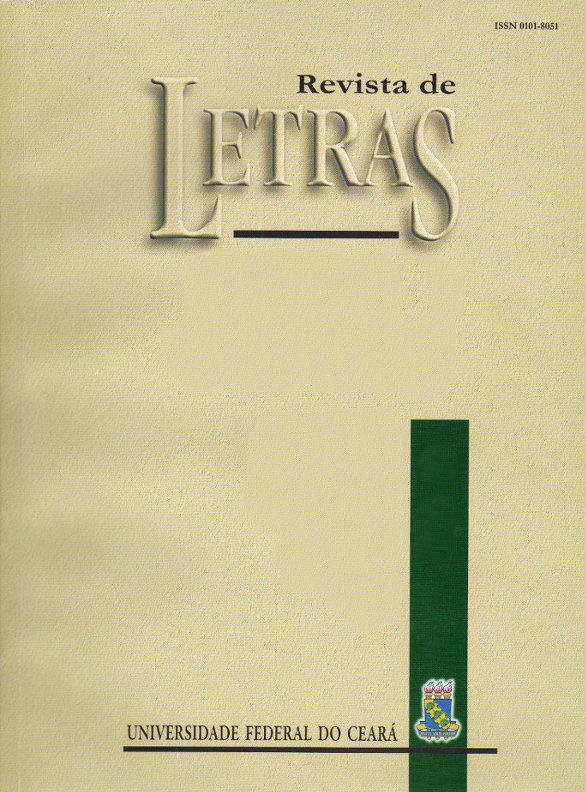A POESIA “SEM NOVOS SECRETOS DENTES” DE TORQUATO NETO
Abstract
The article shows Torquato Neto's poetics as one that, between the 60s and 70s of the 20th century, appropriated Oswald de Andrade's anthropophagy as a creative methodology that allowed him to swallow the symbol of the European vampire, giving rise to a language capable of vampirize texts by other authors, developing a reflection on the common. The objective is to elucidate the importance of this critical and parodistic way of writing contemporary poetry. Through the ideas of anthropophagy, the common and the relationships between evil and literature, Torquato Neto's defense of a language that would not be hostage to sources and influences or exemplarity is exposed. Understanding the poet's poetry as the new non-original that Perloff (2013) speaks of, it is concluded that Torquato Neto's poetry managed to cross the ages, face the censorship of the dictatorship, while remaining contemporary.
Keywords: Contemporary poetry, anthropophagy, vampire poetics,
Downloads
Downloads
Published
How to Cite
Issue
Section
License
Copyright (c) 2023 Revista de Letras

This work is licensed under a Creative Commons Attribution 4.0 International License.
Autores que publicam nesta revista concordam com os seguintes termos:- Autores mantêm os direitos autorais e concedem à revista o direito de primeira publicação, com o trabalho simultaneamente licenciado sob a Licença Creative Commons Attribution que permite o compartilhamento do trabalho com reconhecimento da autoria e publicação inicial nesta revista.
- Autores têm autorização para assumir contratos adicionais separadamente, para distribuição não-exclusiva da versão do trabalho publicada nesta revista (ex.: publicar em repositório institucional ou como capítulo de livro), com reconhecimento de autoria e publicação inicial nesta revista.
- Autores têm permissão e são estimulados a publicar e distribuir seu trabalho online (ex.: em repositórios institucionais ou na sua página pessoal) a qualquer ponto antes ou durante o processo editorial, já que isso pode gerar alterações produtivas, bem como aumentar o impacto e a citação do trabalho publicado (Veja O Efeito do Acesso Livre).

.png)





.png)
